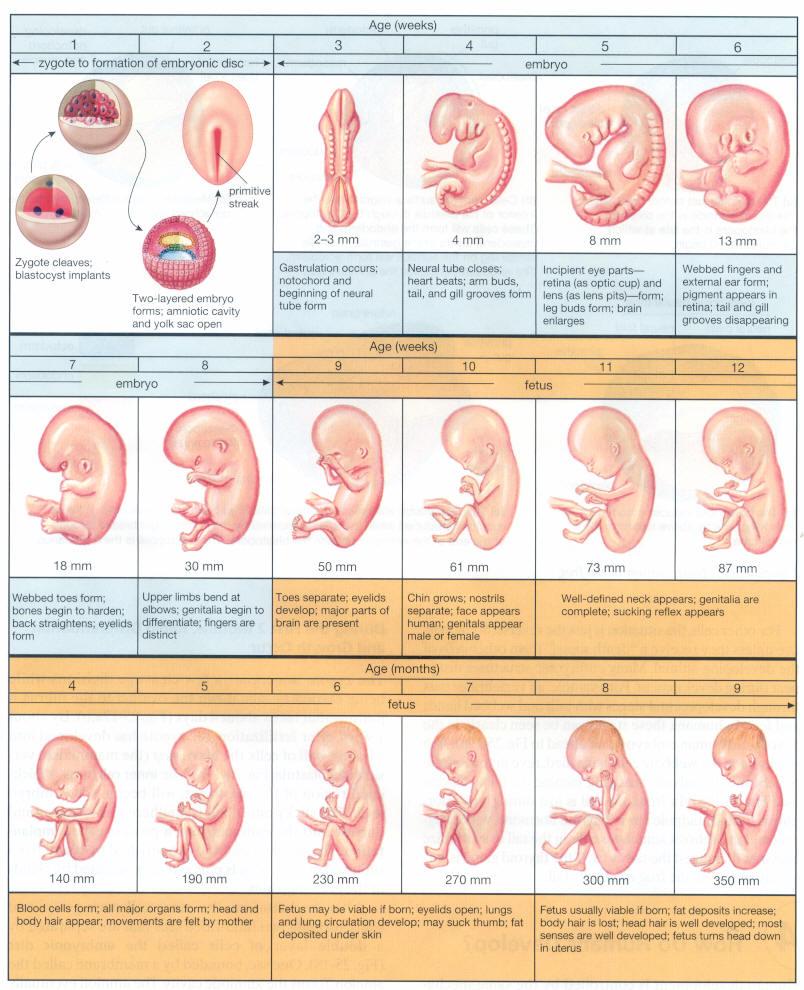 Source: bing.com
Source: bing.comTable of Contents
Welcome to the First Trimester!
Congratulations! You’re pregnant! The first trimester is a time of significant changes and developments in your body, and most importantly, in your growing baby. During this stage, your baby is no bigger than a pea, but it’s developing at an astonishing pace. In this article, we’ll take a closer look at how a baby develops in the first trimester.
Week 1-2: Conception and Implantation
The first two weeks of pregnancy are considered the preconception period. At this point, you’re not technically pregnant yet. It’s during this time that your body prepares for ovulation and your partner’s sperm make their way to your egg. Once the egg is fertilized, it travels down the fallopian tube and towards the uterus. By the end of week two, the fertilized egg will implant itself into the lining of the uterus.
Week 3-4: The Embryo Forms
This is the week when your baby’s development really starts. The fertilized egg divides into two, and then four, and so on until it forms a ball of cells called a blastocyst. The blastocyst then attaches itself to the uterine wall, and the development of the placenta and umbilical cord begins. At this point, your baby is referred to as an embryo, and the first signs of its development start to appear, such as the formation of the neural tube, which will become the brain and spinal cord.
Week 5-6: Major Organs and Tissues Develop
By week five, your baby is about the size of a grain of rice, and its major organs and tissues begin to form. The heart starts to beat, and the arms and legs begin to take shape. The eyes, ears, and nose also begin to develop. Your baby’s brain is growing quickly, and the head makes up almost half of the embryo’s body size.
Week 7-8: Fingers and Toes Appear
This is a crucial period for your baby’s development. The arms and legs continue to grow, and fingers and toes begin to appear. The eyes move closer together, and the ears move to their final position. The nose and upper lip take shape, and your baby’s face starts to look more human-like. The digestive system also starts to develop, and the liver begins to produce blood cells.
Week 9-10: Sexual Differentiation
By week nine, your baby is no longer an embryo but is now considered a fetus. At this point, sexual differentiation begins, and your baby’s sex organs start to form. The bones begin to harden, and the muscles can contract. Your baby can even suck its thumb!
Week 11-12: Growing Rapidly
During these weeks, your baby is growing rapidly. It’s now about the size of a plum, and all of its organs and tissues are in place. The fingers and toes are fully formed, and the nails begin to grow. The vocal cords also start to develop, and your baby can make tiny sounds.
Conclusion
The first trimester is a crucial period for your baby’s development. In just 12 weeks, your baby goes from a fertilized egg to a fully formed fetus. It’s incredible to think about all the changes that happen in such a short amount of time. As a parent, it’s important to take care of yourself and your growing baby during this stage. Eat a healthy diet, get enough rest, and attend all of your prenatal appointments. And remember, you’re growing a precious little life inside you!
Frequently Asked Questions
What are some common symptoms during the first trimester?
Some common symptoms during the first trimester include nausea, fatigue, breast tenderness, and frequent urination. It’s important to stay hydrated and get plenty of rest during this time.
When should I start taking prenatal vitamins?
It’s recommended to start taking prenatal vitamins before you even become pregnant. However, if you haven’t started yet, start taking them as soon as you find out you’re pregnant.
Can I still exercise during the first trimester?
Yes, you can still exercise during the first trimester. However, it’s important to talk to your healthcare provider before starting or continuing any exercise program. Low-impact exercises, such as walking and swimming, are usually safe and beneficial during pregnancy.
What foods should I avoid during the first trimester?
It’s important to avoid certain foods during pregnancy, such as raw or undercooked meat, fish with high levels of mercury, and unpasteurized dairy products. It’s also recommended to limit your caffeine intake.
What if I experience bleeding or severe cramping during the first trimester?
If you experience any bleeding or severe cramping during pregnancy, it’s important to contact your healthcare provider right away. It could be a sign of a miscarriage or other complications.
Related video of How A Baby Develops In The First Trimester
https://youtube.com/watch?v=8312a32dcQc
